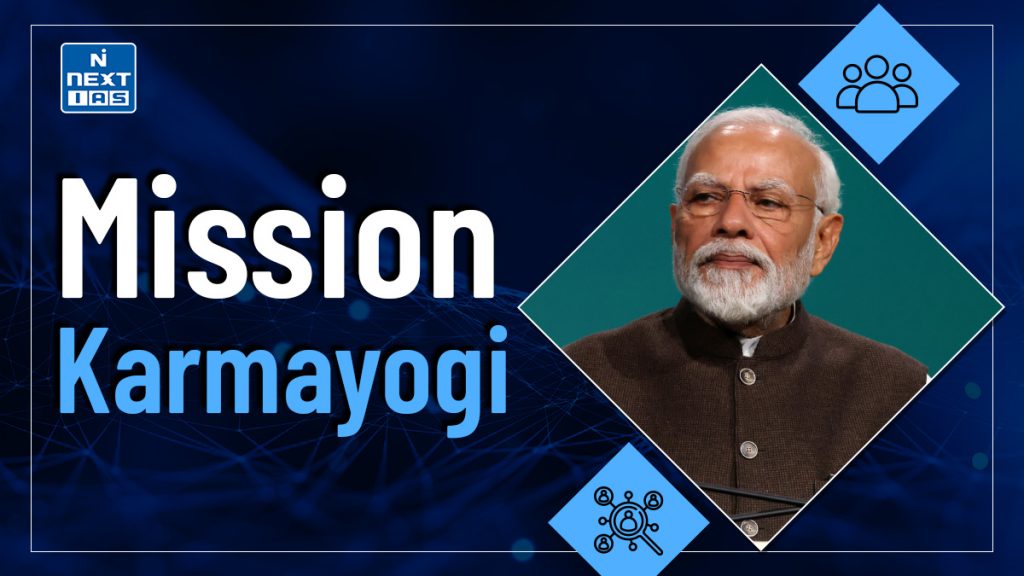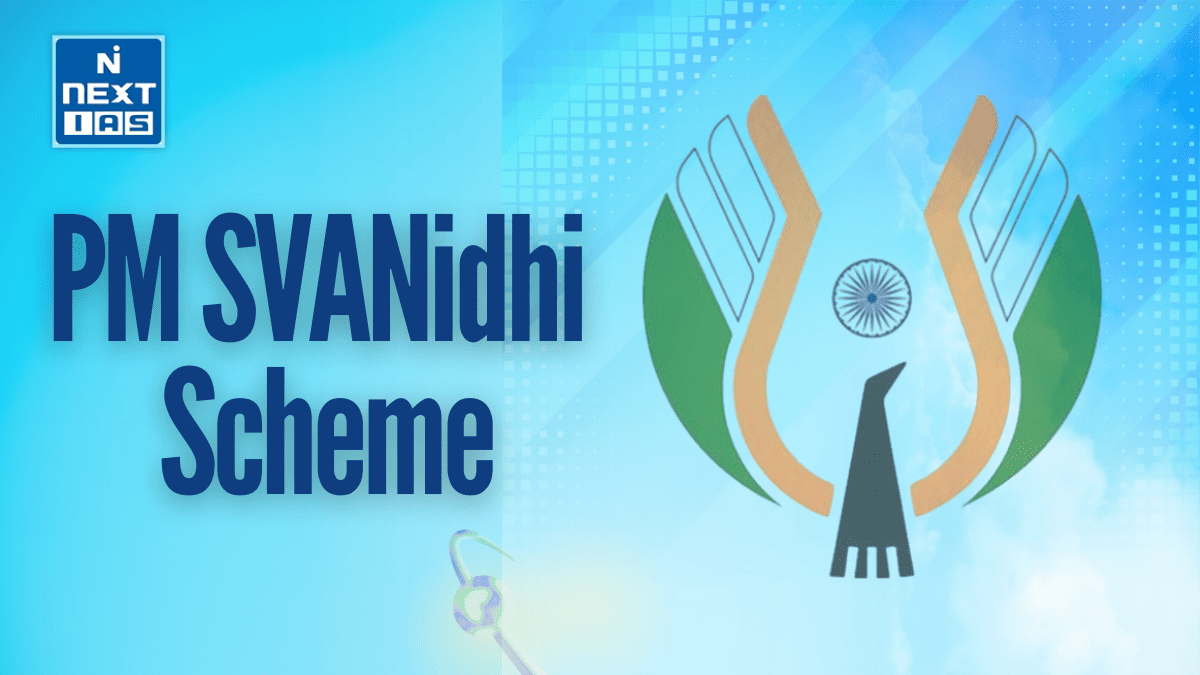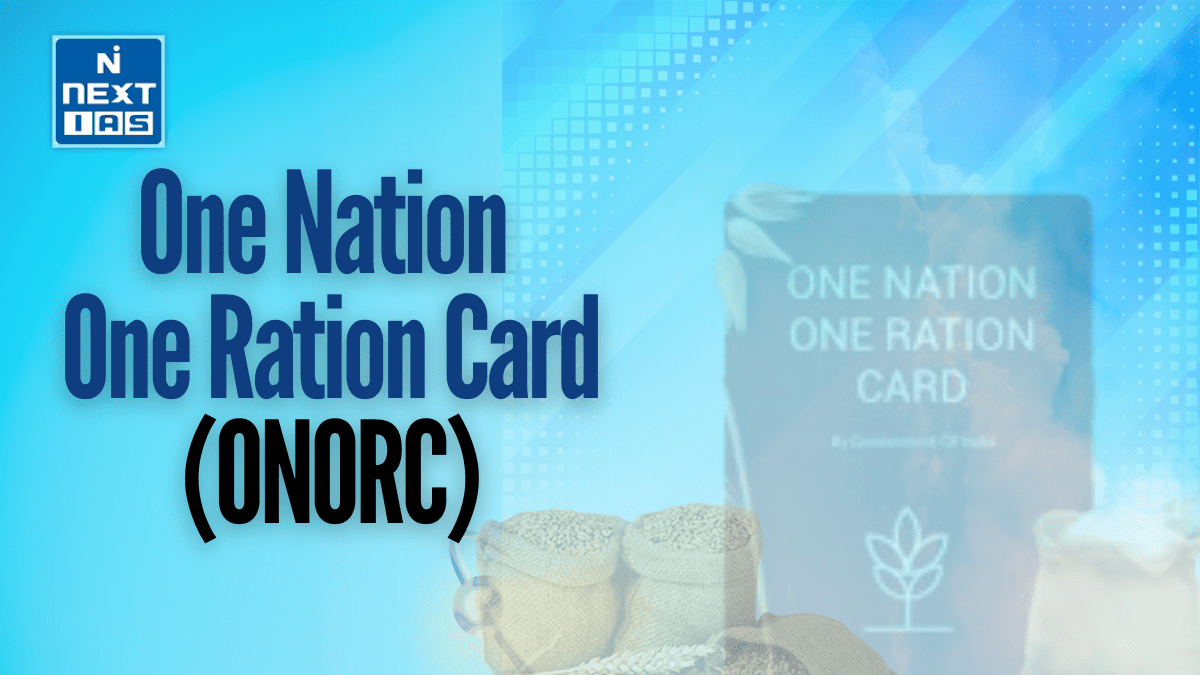
Mission Karmayogi is a transformational initiative by the Government of India to nurture higher efficiency among its civil services, with higher skills and an attitude. It is primarily capacity building through digital learning using the iGOT Karmayogi platform for a future-ready bureaucracy that provides enhanced governance and citizen-centric services.
About the Mission Karmayogi
- The National Programme for Civil Services Capacity Building (NPCSCB) envisioned by the Government, addresses the changing needs and aspirations of the citizen.
- Anchored by an apex body and headed by the Prime Minister, it is designed to enhance the civil services under a national programme.
- Central to the programme is the recognition that a suitable government workforce requires a competency driven capacity building approach.
- The workforce will focus on imparting competencies critical to discharge its roles.
- This will be achieved through a Competency Framework for Civil Services that will be totally indigenous to India.
Vision of the Mission Karmayogi
- The NPSCSB aims to embark on a learning transformation program that will address the capacity building issues of Civil Services through a single Online Platform – iGOT Karmayogi.
- iGOT Karmayogi aims to be a platform for online, face-to-face, and blended learning and managing lifelong learning records of officials.
- The nexus of these two will lead to –
- AI-enabled assessment of competency levels
- Competency gaps in an individual
- Data-driven strategic HR decision making both leading to Strategic HR Management of the Government.
- The entire Programme will be governed by a robust Institutional Framework that will constitute shared ownership between the Centre and the States. This Framework will be supplemented by a Policy Framework that shall include –
- Implementable policies
- Aligns modalities of government
- Creates positive momentum
- The Programme shall, through a robust monitoring and evaluation system of all components at every level, instill the culture of accountability and transparency, thus enabling a clear line of sight between strategy and implementation.
Significance of Mission Karmayogi
Bureaucratic Efficiency Enhancement
- Development of skills for civil servants to tackle the newer administrative challenges.
- Hence, data-driven decisions are adopted, thus ensuring governance quality.
Competency-Based Training
- Moves away from rule-based to a role-based system so that officials are able to gain expertise pertinent to their responsibilities.
- With iGOT Karmayogi, officials are kept engaged with specialized training modules.
Citizen-Centric Governance
- Making government services more responsive and transparent
- Strengthen public trust through the removal of red signals of bureaucracy.
Encouraging Innovation & Adaptability
- Promotes 21st-century skills, comprising digital literacy, leadership, and ethics.
- Adapt officials to new policies and technologies.
Whole-of-Government Approach
- Integrates training programs across departments to ensure standardized governance practices.
- Creates a basis for cooperation among ministries, states, and local bodies.
Long-Term Administrative Reform
- Aims at creating a civil service that is future-ready and committed to India’s development goals.
- Supports programs such as Digital India, Atmanirbhar Bharat, and Ease of Doing Business.
Lacunae of Mission Karmayogi
Launched in 2020, Mission Karmayogi intends to revamp civil service capacity building in a competency-based learning system. While the initiative is forward-looking, many gaps and challenges stand in the way of its effective implementation.
Digital Divide and Accessibility Issues
- Its mode of training is primarily digital learning through the iGOT-Karmayogi platform, which may screen out officers residing in remote areas where internet access can be low.
- Senior bureaucrats used to conventional training could also find the digitization hard.
One-Size-Fits-All Approach
- The said framework may not be able to serve the requirements of different roles under various services on an equal basis.
- More customized training content focusing on department and department needs will be more effective.
Resistance to Change
- Such learning approaches are often resisted by many bureaucrats in favor of conventional training methods.
- With no considerable incentives or accountability provisions, interest might remain low.
Assessment and Implementation Challenges
- There is a magic in trying to assess if there has been any increase in skill and change in behavior.
- Without such serious evaluation mechanisms, the scheme could end up shortened.
Funding and Institutional Readiness
- Effective implementation requires consistent funding, but resource allocation has been unclear.
- Coordination between central and state-level institutions remains weak, affecting execution.
Lack of Private Sector and Global Best Practices Integration
- The scheme could benefit from global best practices in bureaucratic training.
- Limited public-private collaboration restricts innovation in training modules.
Mission Karmayogi for the UPSC CSE Prelims
Overview
- Full Name: National Programme for Civil Services Capacity Building (NPCSCB)
- Initiated: Una Government of India in September 2020
- Objective: Capacity building of Civil Servants in Governance and Service Delivery.
Key Features
- Training oriented towards competencies for Civil Servants
- Role-based learning as against rule-based training
- Covers all levels of civil services viz. Group A to Group C
- iGOT Karmayogi: A digital platform for continuous learning.
Institutional Framework
- Capacity Building Commission for Monitoring Implementation
- Karmayog SPV: Special Purpose Vehicle (SPV) for managing iGOT Karmayogi
- Coordination Unit: Includes Cabinet Secretariat, PMO and other ministries.
Funding & Governance
- Budget: ₹510.86 crores for 5 years (2020-2025)
- Public Private Partnership Model for implementation.
Importance
- Increases efficiency, transparency, and accountability
- Makes civil service training relevant to India’s developmental requirements
- A mechanism for continuous learning and upskilling.
Way Forward
The way forward for Mission Karmayogi includes scaling digital learning, enhancing competency-based training, and fostering a performance-driven bureaucracy. Strengthening iGOT Karmayogi, integrating AI-driven analytics, and ensuring adaptive governance will build a future-ready civil service, driving efficiency, transparency, and citizen-centric governance for India’s evolving administrative needs.
Conclusion
Mission Karmayogi is a transformational initiative focused on improving civil service capacity through continuous learning, digital training, and competency-based skill development. It strives for an efficient, accountable, and citizen-centered governance, hence building a future-ready bureaucracy in tandem with good governance and nation-building in India in the 21st century.
GS - 2




